

Recalling the History of Science, Commemorating Our Senior Scientists, and Promoting the Spirit of Science: Academician Wang ZhizhenDiscusses the Significant Contributions of Chinese Scientists to Protein Folding Research | The Opening of the 13th Session of “PUMC Broad Innovation Forum”
To implement the requirements of IBMS’s Cultural Construction Year and promote the spirit of scientists, the 13th Session of “PUMC Broad Innovation Forum” was held on May 6, 2025 in the West Lecture Hall on the eighth floor of Kesheng Building. Wang Zhizhen, the famous biochemist and molecular biologist and the researcher of the Institute of Biophysics of Chinese Academy of Sciences (CAS), delivered to nearly 100 participants a wonderful academic report entitled “Recalling the History of Science, Commemorating ourSenior Scientists, and Promoting the Spirit of Science: Significant Contributions of Chinese Scientists to Protein Folding Research”. Academicians QiangBoqin and Liu Depei were present as invited guests at the forum, which was successively chaired by Wang Jing, Secretary of the Party Committee and Vice Dean of IBMS, and Cheng Tao, Dean of IBMS.
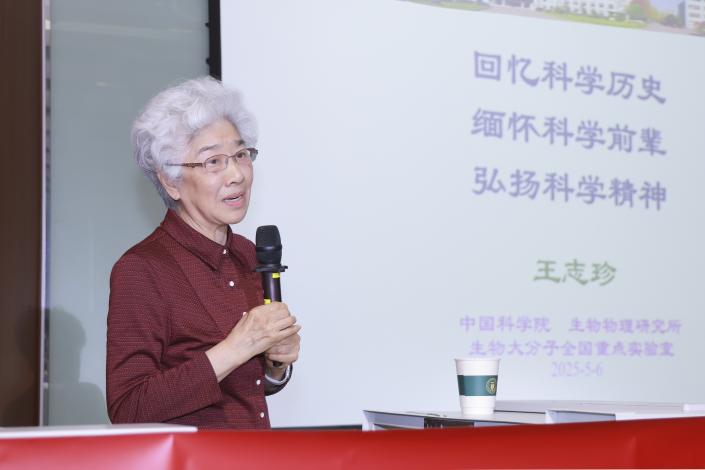
Academician Wang Zhizhen first reviewed the deep friendship and cooperation foundation she had established with IBMS over her years of work. Then, starting from the scientific history of protein folding research, she sorted out the pioneering contributions of Chinese scientists in this field. She specifically mentioned that compared with foreign scholars who had won the Nobel Prize in Chemistry, the Chinese scientists of the older generation had made achievements actually far ahead of the world, such as the groundbreaking work of Master Wu Xian, a pioneer in biochemistry, who first proposed the theory of protein denaturation in the world, and Master Zou Chenglu, who first overcame the key bottleneck problem in “artificially synthesized insulin” in the world, that is, the recombination of peptide chains A and B into active insulin molecules, indicating that “the primary structure of proteins determines their higher structure”.
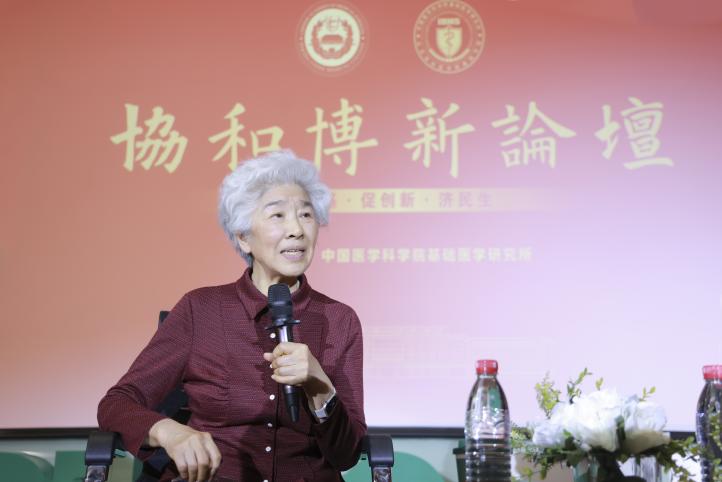
Proteins are the primarybearer of all life activities. Research on proteins is now faced with a shift of paradigms. In the 1960s and 1970s, the progress and achievements made by Chinese scientists and American scientists in insulin and ribonuclease respectively could “rightfully be listed as the two champions in the first echelon”. Nowadays, the rapid development of artificial intelligence has propelled protein science into its fourth golden age. Academician Wang emphasized that in the era of artificial intelligence China’s role would become more prominent.She advocated that Chinese scientists should play a more important role in conducting scientific research and have firm confidence in their own scientific research work carried out in our country.
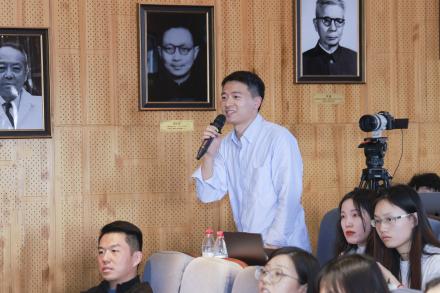
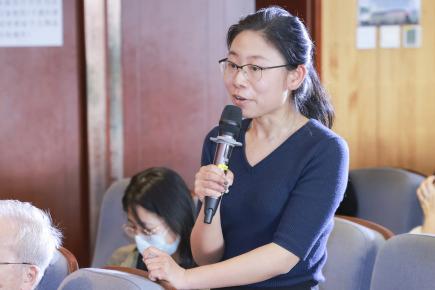
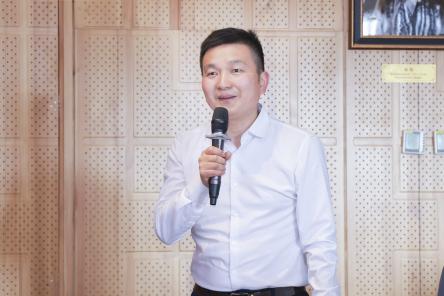
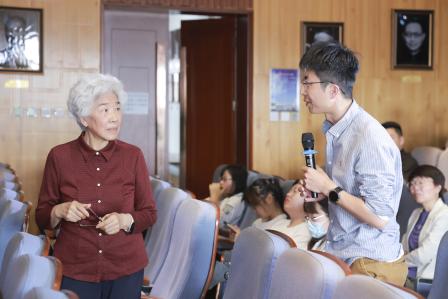
During the Q & A session, Academician Wang engaged in a cordial exchange with the teachers and students present at the forum. The discussion involves not only professional questions such as research on protein structure but also questions concerning the organizational forms of research and career development paths of young researchers in the new era. She also recalled the spirit of rigorous scholarship and patriotic dedication of senior scientists such as Wu Xian and Zou Chenglu. She mentioned that scientists who had made outstanding contributions in the field of protein research were often those in their young and middle age. She called on young researchers and students to make good use of their youth and good research environments to make due contributions to the medical and health undertakings by valuingthe cultivation of research quality, strengthening their own determination, establishing correct views on the world, life and values, maintaining curiosity and imagination, and enhancing team awareness and dedication spirit.
Since 2021, IBMS has invited 12 strategic scientists to the “PUMC Broad Innovation Forum” to share and exchange ideas on the history, cutting-edge research, and current development status of medical sciences. The series of events have been widely welcomed among young researchers, teachers, and students.